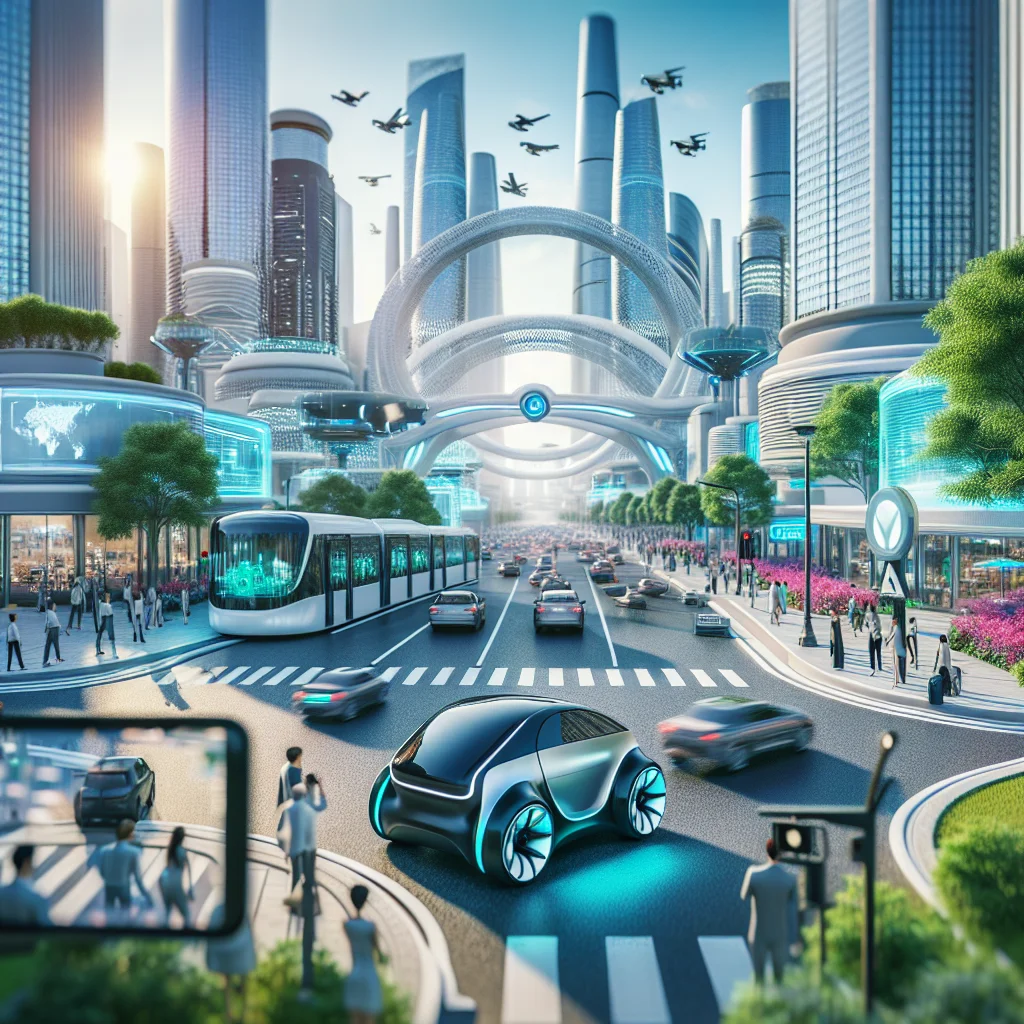AI Innovations Reshaping the Automotive Industry in 2025
April 24, 2025

In 2025, the automotive industry is undergoing a seismic shift, driven primarily by advancements in artificial intelligence (AI). From autonomous vehicles to smart manufacturing, AI is redefining how cars are designed, manufactured, and operated. This article delves into the latest innovations in AI within the automotive sector and their real-world applications, showcasing how technology is enhancing safety, efficiency, and overall user experience.
The Rise of Autonomous Vehicles
One of the most notable transformations in the automotive industry is the development of autonomous vehicles, commonly referred to as self-driving cars. Companies like Waymo, Tesla, and Cruise have pushed the envelope on AI capabilities, utilizing deep learning and sophisticated algorithms to enable vehicles to navigate autonomously. In 2025, fully autonomous vehicles are not just a concept, but a reality in certain urban environments.
These vehicles utilize a combination of AI-driven sensors, cameras, and LIDAR technology, allowing them to interpret vast amounts of data from their surroundings in real-time. Advanced neural networks train these systems by processing millions of scenarios, enabling cars to make quick decisions in complex traffic situations. This leap in technology promises to reduce accidents significantly, as AI can react to hazards faster than human drivers.
AI in Manufacturing: A New Era of Production
Beyond driving, AI is revolutionizing the manufacturing processes within the automotive industry. From supply chain management to predictive maintenance, AI technologies are enhancing efficiency across the board. Smart factories, powered by AI, are now capable of monitoring equipment health in real-time, predicting failures before they occur, and optimizing production schedules based on demand insights.
For instance, companies like BMW and Ford are utilizing AI-driven analytics to streamline their production lines. These systems can analyze data from various sources, including market trends and production metrics, allowing automakers to adjust their workflows dynamically. This flexibility not only reduces costs but also contributes to a more sustainable manufacturing process by minimizing waste.
Enhancing Driver and Passenger Experience
AI is also significantly improving the user experience inside vehicles. Voice recognition systems are becoming increasingly sophisticated, allowing drivers to interact with their vehicles seamlessly. AI-powered virtual assistants can manage navigation, control infotainment systems, and even adjust car settings based on the driver’s preferences. In 2025, these systems will learn from driver behavior, adapting functionalities and preferences over time to create a more personalized experience.
Moreover, AI is enhancing safety features through advanced driver-assistance systems (ADAS). For example, collision avoidance systems, lane-keeping assistance, and adaptive cruise control leverage AI to ensure safer driving experiences. These technologies continuously evolve, utilizing data from millions of miles driven to refine their algorithms and improve accuracy.
AI and Sustainability: Eco-Friendly Innovations
Sustainability is becoming a crucial focus in the automotive sector, with AI playing a vital role in promoting eco-friendly practices. AI algorithms are optimizing electric vehicle (EV) battery management systems, ensuring efficient charging and extending battery life. Additionally, predictive analytics help manufacturers reduce their environmental impact by optimizing resource utilization and minimizing emissions during production.
In 2025, we see automakers increasingly utilizing AI for designing more energy-efficient vehicles. For instance, AI can optimize aerodynamics and material selection during the design phase, leading to lighter and more fuel-efficient cars. Companies are now integrating AI into the vehicle lifecycle—from design to disposal—aiming for a circular economy approach that is essential for the future of transportation.
Collaborations Driving AI Advancements
The rapid advancement of AI technologies in the automotive sector is also fueled by collaborations between automakers and technology firms. Companies such as Toyota and Google’s Waymo are continuously exploring synergies that harness AI capabilities for better solutions. In 2025, these partnerships are expected to expand, focusing on integrated technologies that enhance both vehicle performance and user safety.
Moreover, partnerships with telecommunications companies are positioning automotive manufacturers to improve vehicle connectivity through 5G technology. This new wave of connectivity will allow vehicles to communicate with each other and with infrastructure, enabling smarter cities that can enhance traffic management and reduce congestion.
Conclusion
As we progress through 2025, the automotive industry stands at the forefront of an AI-driven transformation. From fully autonomous vehicles enhancing road safety to smart manufacturing processes reducing environmental impacts, AI is illustrating its potential to reshape the industry at every turn. The synergy between AI innovations and automotive applications serves as a testament to the promising future of transportation, paving the way for a safer, more efficient, and sustainable automotive landscape.
Back